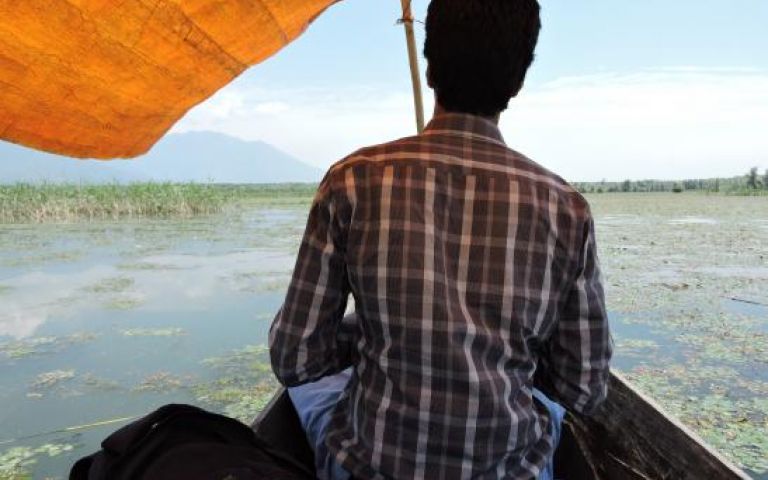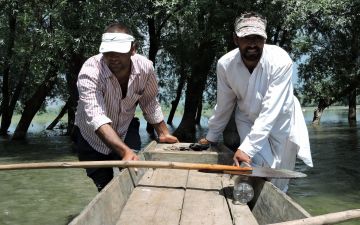Invasive alien species are environmentally damaging agents affecting the well-being of many underserved populations, often spread by international trade and travel. The expense to control and eradicate a species, once it is established, comes at a high cost for developing nations. India, one such country, continues to grapple with a slew of biological invaders which disrupt the ecology of life-sustaining lands, lakes, and rivers.
The recent arrival of two invasive plant species, alligator weed and Azolla, in Kashmir's Wular Lake threaten the benefits the lake provides to the surrounding communities. Access to food, drinking and irrigation water, and many other necessities is hindered by the growing catastrophic ecological changes in Kashmir’s largest freshwater lake. The floating plants can potentially cover the whole surface of this shallow waterbody if left unchecked—leading to the loss of native plant and fish communities and making it impossible to travel by boat. The people using the lake may also suffer greater disease burdens as mosquito populations increase.
With the recognition of Wular Lake as a wetland of international importance under the Ramsar Convention in 1990, various management plans have included suggestions for conservation. But improvements have yet to be seen.
Revitalizing the lake’s natural ecosystems and protecting the livelihoods of lake-dependent laborers will require the combined efforts of both the local people and government. Eradicating the invasive plant species is key.




